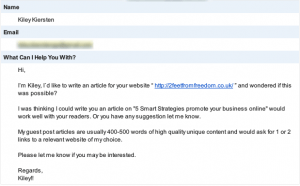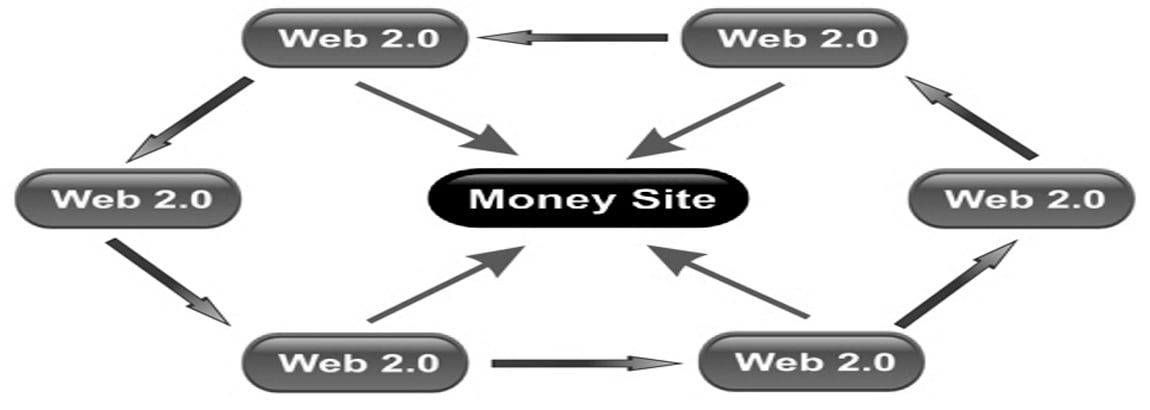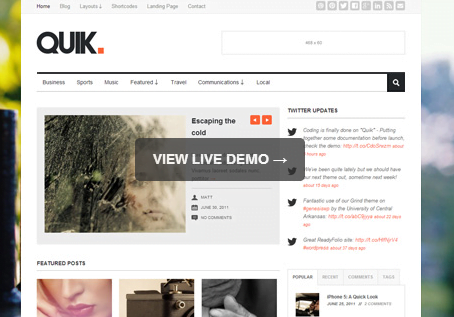Fear, Uncertainty And Doubt: Google’s SEO Panic Engine
By now, you’ll have heard the news and probably read Matt Cutts’ latest post (that link’s no-followed, Matt, don’t worry), where he talks about how Google will be taking a dimmer view of guest blogging in the future.
In his words:
So stick a fork in it: guest blogging is done; it’s just gotten too spammy.
Like I say, you’ll probably have seen the post by now, you’ll probably have seen the fallout on Twitter, you may have seen Danny Sullivan’s epic (and slightly surprising) comment on that post and you might have re-visited it a couple of hours later to see Cutts’ update to the post.
That’s not what I’m going to talk about today – everyone’s doing that – I’m more interested in the approach that Google use when disseminating information to the SEO industry, particularly Matt Cutts.
Fear, Uncertainty, Doubt

Fear, uncertainty and doubt (FUD) is a common propaganda and psychological warfare tactic in a variety of industries. It keeps the “target” on their toes, unsure what’s going to happen next, what they should do about it and, ultimately, pushes them towards compliance. The target is completely wrong-footed, afraid and goes along with what they’re told, simply because they don’t know what else to do or who they can trust.
This is largely how Google deals with SEO’s. Every now and then, when something starts to gain some traction within the industry (which, yes, does usually mean it’s turning into spam), they decree that it is bad, any links should be no-followed and that anyone doing it without no-follows risks penalisation.
Let’s look at the list over the last few years:
- Directories
- Article syndication
- Blog comments
- Blog networks
- Footer links
- Sidebar links
- “Obviously” paid links
- Press releases
- Infographics
- Widgets
- Guest blogging
I’m sure I’ve missed a few, but you see where I’m going with this, particularly the most recent four. A number of these were useful, informative, authentic approaches to telling people who you are and sharing your message, some of which Google even recommended at one point, which people have now been told “no more or no-follow”.
Every time Matt Cutts makes one of these announcements, there’s the usual outrage underpinned with fear from SEO’s on Twitter, the “you say this, then you say that, what are we supposed to do now?” and that’s exactly what it’s designed to do.
All the time Google can’t algorithmically tell the difference between “good” and “crap”, they’re going to tell the SEO industry that anything which gets results and they’ve been working to scale (often badly, admittedly) is automatically considered crap and that they’re all very naughty boys and girls.
While a lot of agencies are focusing on figuring out what they can do next, how they can continue to scale their link building processes, Google’s webspam team are able to take a breath while they focus on improving their detection of bad practice or whatever else it is they do all day.
But we’re all on our toes, right? No one’s quite sure where the hammer’s going to drop next. Best just go along with what we’re being told and hope for the best. At least, that’s the idea.
It’s Tough To Scale Quality
It’s always worth applying some critical thinking to what Google say, looking at the words and also looking at what they don’t say, or at least don’t say at first.
Matt clarified Google’s stance a bit later on in an update to the post, where he said:
I just want to highlight that a bunch of low-quality or spam sites have latched on to “guest blogging” as their link-building strategy, and we see a lot more spammy attempts to do guest blogging. Because of that, I’d recommend skepticism (or at least caution) when someone reaches out and offers you a guest blog article.
So there you go, panic over. If you’re doing good work, creating useful content and sharing your content on a site which is relevant to the niche and has an editorial process rather than posting rubbish on a site that accepts anything, you should be OK. Quality always wins out, whatever form it takes. This shouldn’t be a shock.
It’s just a shame that Google can’t just come out and say it, rather than perpetuating fear, uncertainty and doubt. Maybe it’s because everyone automatically assumes that it’s everyone else doing bad work, who knows?

The problem is that good work is hard to scale. I know that as well as anyone; my team does everything ourselves rather than outsourcing anything. All our work is done as manually as possible to the highest standard we can and I don’t believe in shortcuts or putting clients at risk of penalisation. It works, we get results and we’re generally quite awesome. The downside is that this stuff takes a lot of time and, consequently, costs a lot of money. It also means that I’ve been known to go without sleep and have probably done a fair bit of damage to myself thanks to my coffee consumption.
Quality’s tough to scale. When you’re working on a tighter budget with a lot of clients (I’ve done my time in those trenches), you need to find a way to make it more efficient and that can, unfortunately, mean the quality of the work declines.
That said, while it works, of course SEO’s are going to pile on. Outsourced, poorly-written guest posts on sites with “questionable” editorial policies have been working for quite a while and they don’t exactly cost a huge amount of money to produce. It’s certainly been on Google’s radar for a while, but it’s carried on, which is probably why Matt Cutts felt the need to fire up the Panic Engine again.
So What Do We Do Now?
I’d suggest simply not playing Google’s game. Don’t panic and completely discount a tactic just because they release a video saying it’s over. Don’t throw the baby out with the bathwater, just do good work. Do your research. Make sure your link building is targeted, relevant and authentic. Create good content and tell people about it, whatever format that takes. Never rely on just one tactic. Use critical thinking. Don’t fall foul of the Panic Engine – it only exists to keep you off your game.
If you’ve been around the industry for a while, you’ll know what’s good work and what’s not. It’s just a shame Google can’t quite tell the difference yet.
What do you reckon? Am I wearing the tinfoil hat again, or do you think that Google’s Webmaster Messages really do only exist to keep the SEO industry on its toes?
* The “good guest post” example in the slider can be found here. Do read it, it’s epic.



